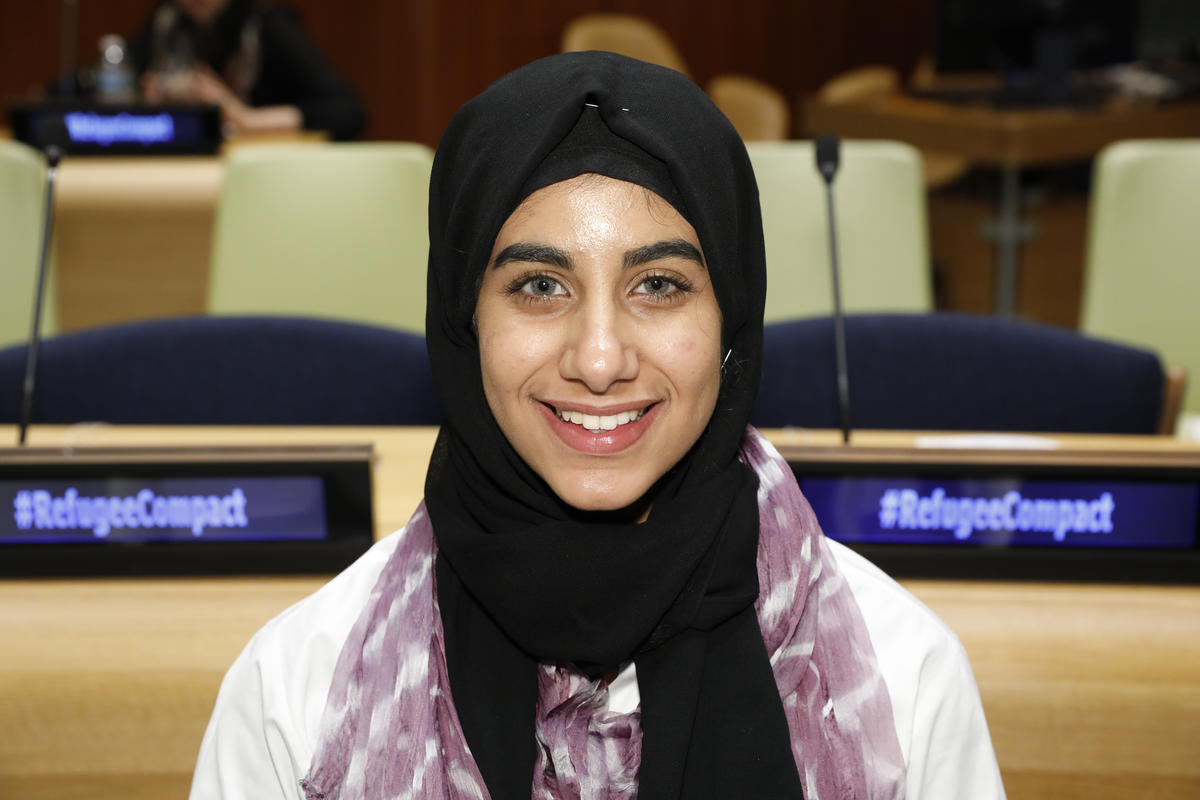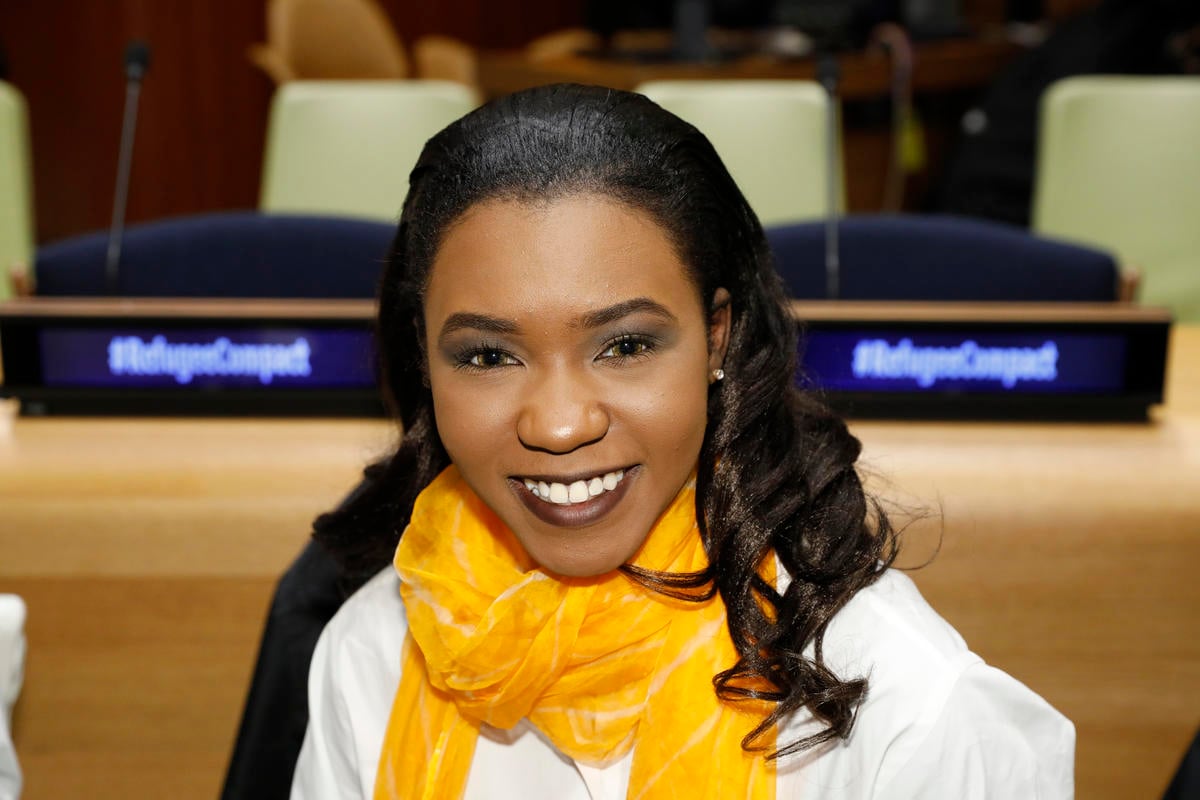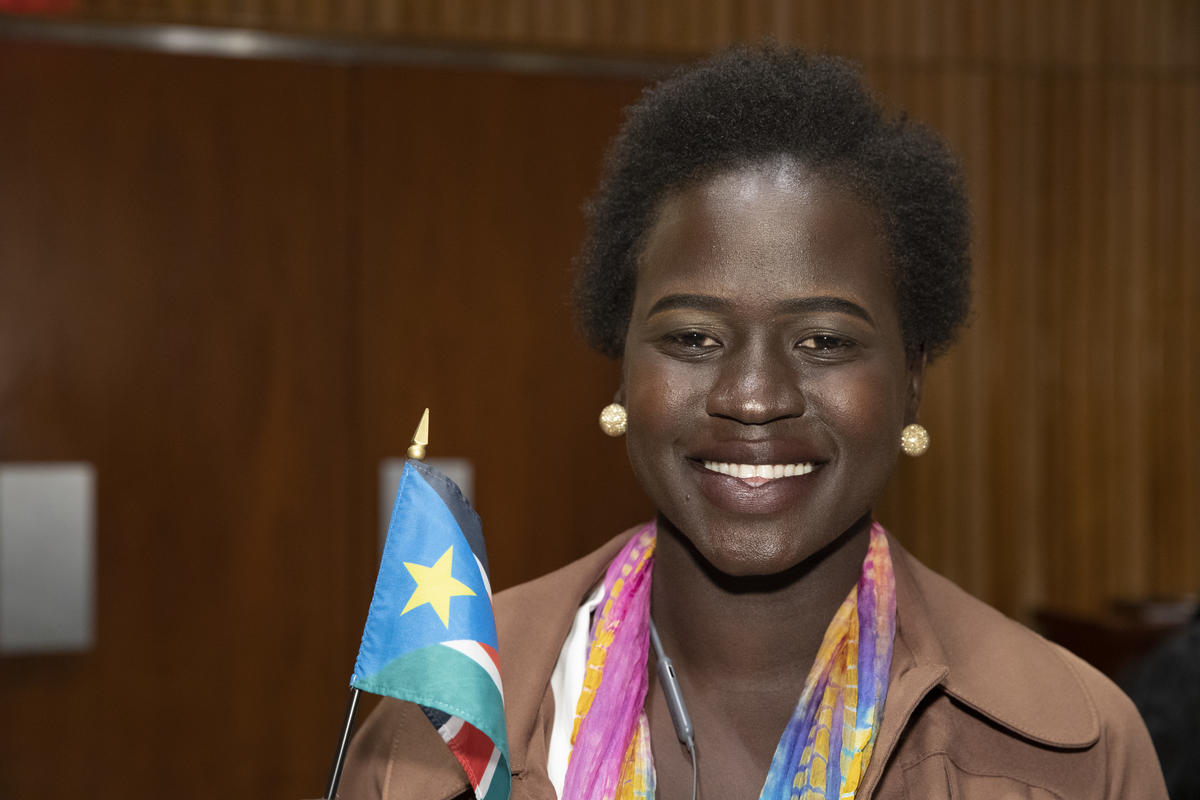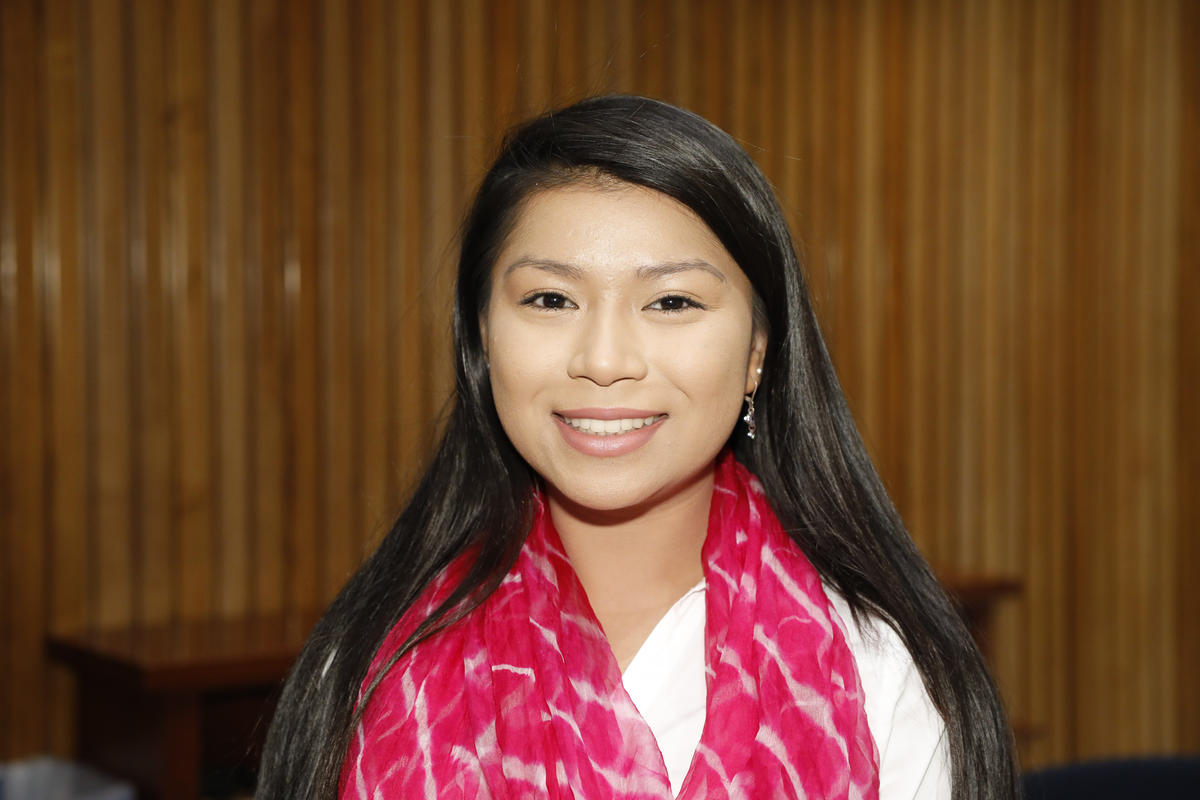Refugee and immigrant girls from 19 countries unite their voices in one choir

Refugee and immigrant girls from 19 countries unite their voices in one choir
They are dressed in extra-large white shirts, black leggings and a rainbow of scarfs. Some of the girls cover their heads with veils, others wear beads, braids or colourful nails. Coming from 19 different countries as refugees or immigrants, the girls and young women who form Pihcintu choir may look very different from each other, but when they sing, they do it in one voice.
“When we sing together, we sing as a family,” says Sara Ali, 16, from Sudan.
“Our songs are mostly about peace and making sure our voices are heard,” adds Fatima LamLum, 14, from Iraq. “Because we have a lot of stories to tell.”
34 girls and young women of Pihcintu choir recently broke the routine at the United Nations headquarters in New York with their cheerfulness and optimism. They were visiting the city to show their support for a new global agreement promoting more and better solutions for refugees and the countries that host them – an issue that is close to the hearts of Pihcintu choir members.
Their families come from countries like Burkina Faso, Iraq, Vietnam or El Salvador, where many fled conflict and persecution, and they found safety in Portland, Maine in the United States.
“Our songs are mostly about peace and making sure our voices are heard.”
“Pihcintu” is an indigenous word from the Passamaquoddy peoples meaning, “When she sings, her voice carries far.”
Becoming familiar with Maine’s refugee resettlement program is what compelled Con Fullam to found Pihcintu 14 years ago.
“When you move to a new country, the first thing you lose is your voice,” Fullam says. He wanted to empower those newly arrived girls to raise their voices and tell their stories.
“When you first move into a new place you feel lonely,” says Fatima, who joined the choir seven years ago. “This was like a new family for me because we got to connect about all the things we believe in together.”
The girls practice every Monday evening, but beyond singing together, they have established profound bonds.
“I can’t express how much I love these girls,” says Sara with sparkling brown eyes. “We see each other every week and when we don’t it feels like a part of me is missing.”
For many girls, the choir was a safe space that allowed them to better integrate themselves into the community – or even learn English.
That was the case of Nyawal Lia, 24, from South Sudan. When she first joined, she saw the choir as a space where she could “sing, learn English, get some free snacks, and meet girls from other countries.” 12 years later, the choir has become an essential part of her life.
Nyawal, who lived in a refugee camp in Ethiopia before moving to the US in 2001, now feels empowered to represent the needs of refugees in Portland and beyond.
“It is critically important for refugees to step up in our representation and for the receiving countries to recognize our contributions,” she says.
“When we sing together, we sing as a family.”
The members of Pihcintu are between nine and 24 years old. As they grow up, the girls’ schedules often fill up with competing activities and it becomes harder for them to stay committed to the choir.
Of the over 300 girls who have been members of Pihcintu in its 14 years of existence, 100 per cent have graduated high school and 85 per cent have graduated college, Fullam proudly explains.
Some members remain attached to Pihcintu even after going to college, like Bridget Duong, who is 22 and the most veteran active member. Bridget joined the choir because she saw her sister was having so much fun. 13 years later, she is still involved and participates in performances.
“It provides an outlet to express how we feel and what is going on in our home countries,” Bridget says.
With songs like “We are family” or “This little light of mine,” Pihcintu brightened up the UN headquarters and expressed a strong message of diversity and solidarity.













